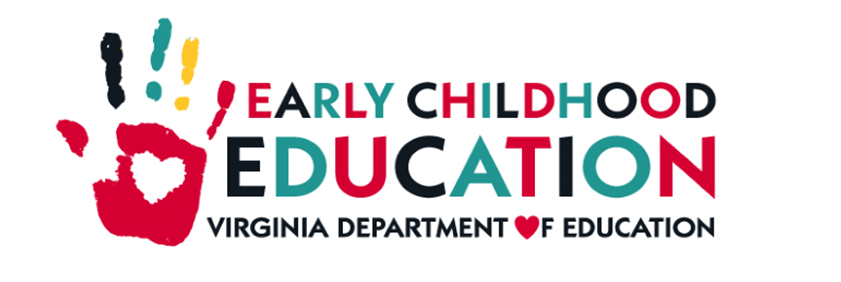Training & Professional Development
Professional Development Interest Form
- Earn Child Development Associate (CDA) Credential (Infant/Toddler, Family Child Care), and Infant Toddler Career Studies Certificate
- Receive scholarships
Back to School Brochure
- Earn your Child Development Associate (CDA) Credential or Infant Toddler Career Studies Certificate.
- Discover scholarship opportunities like the Virginia Child Care Provider Scholarship Program and Project Pathfinders to support your educational journey.
VA ITSN Virtual Trainings
Follow-up Support
Available after attending VA ITSN training, including anything from a phone call for clarification to one-on-one mentoring or coaching
Apply for the Statewide Conference Scholarship
Scholarship opportunities for infant and toddler child care providers who are receiving Coaching Services to attend statewide conferences including VAAEYC and Virginia Head Start (up to $300)
Upcoming Event

The VDOE website provides information on:
Online training classes for infant/toddler caregivers including local, regional, and statewide training and conferences
Medication Administration Training (MAT) Program
The Virginia Child Care Provider Scholarship Program
Guidance & resources including the Virginia Early Childhood and Child Care Professional Development programs
Current News, Events, Bulletins
Publications including Competencies for Early Childhood Professionals and Family Child Care Toolkit
Webinars
Watch all our recorded webinars with access to downloadable handouts.
Request for VA ITSN Services
The Virginia Infant & Toddler Specialist Network services include individualized coaching, training, mentoring, and feedback as well as resources and materials related to increasing the quality of care provided to infants and toddlers.
Video Learning Library
Change the First Five Years and You Change Everything
Early education programs do not supplant parents, but support them as their childs first and most important teacher. The sad reality is that many low-income parents grew up in poverty and may not have the tools to support their childs education. Evidence-based programs coach low-income parents on how to best support their childs education at school and at home starting before the child is born. Only by supporting the family can we narrow the achievement gap and break the cycle of poverty.
Serve & Return Interaction Shapes Brain Circuitry
One of the most essential experiences in shaping the architecture of the developing brain is “serve and return” interaction between children and significant adults in their lives. Young children naturally reach out for interaction through babbling, facial expressions, and gestures, and adults respond with the same kind of vocalizing and gesturing back at them. This back-and-forth process is fundamental to the wiring of the brain, especially in the earliest years. This video is part two of a three-part series titled “Three Core Concepts in Early Development” from the Center and the National Scientific Council on the Developing Child. The series depicts how advances in neuroscience, molecular biology, and genomics now give us a much better understanding of how early experiences are built into our bodies and brains, for better or for worse. Healthy development in the early years provides the building blocks for educational achievement, economic productivity, responsible citizenship, lifelong health, strong communities, and successful parenting of the next generation. For more information, please visit: https://developingchild.harvard.edu
Experiences Build Brain Architecture
The basic architecture of the brain is constructed through a process that begins early in life and continues into adulthood. Simpler circuits come first and more complex brain circuits build on them later. Genes provide the basic blueprint, but experiences influence how or whether genes are expressed. Together, they shape the quality of brain architecture and establish either a sturdy or a fragile foundation for all of the learning, health, and behavior that follow. Plasticity, or the ability for the brain to reorganize and adapt, is greatest in the first years of life and decreases with age. This video is part one of a three-part series titled “Three Core Concepts in Early Development” from the Center and the National Scientific Council on the Developing Child. The series depicts how advances in neuroscience, molecular biology, and genomics now give us a much better understanding of how early experiences are built into our bodies and brains, for better or for worse. Healthy development in the early years provides the building blocks for educational achievement, economic productivity, responsible citizenship, lifelong health, strong communities, and successful parenting of the next generation. For more information, please visit: https://developingchild.harvard.edu


